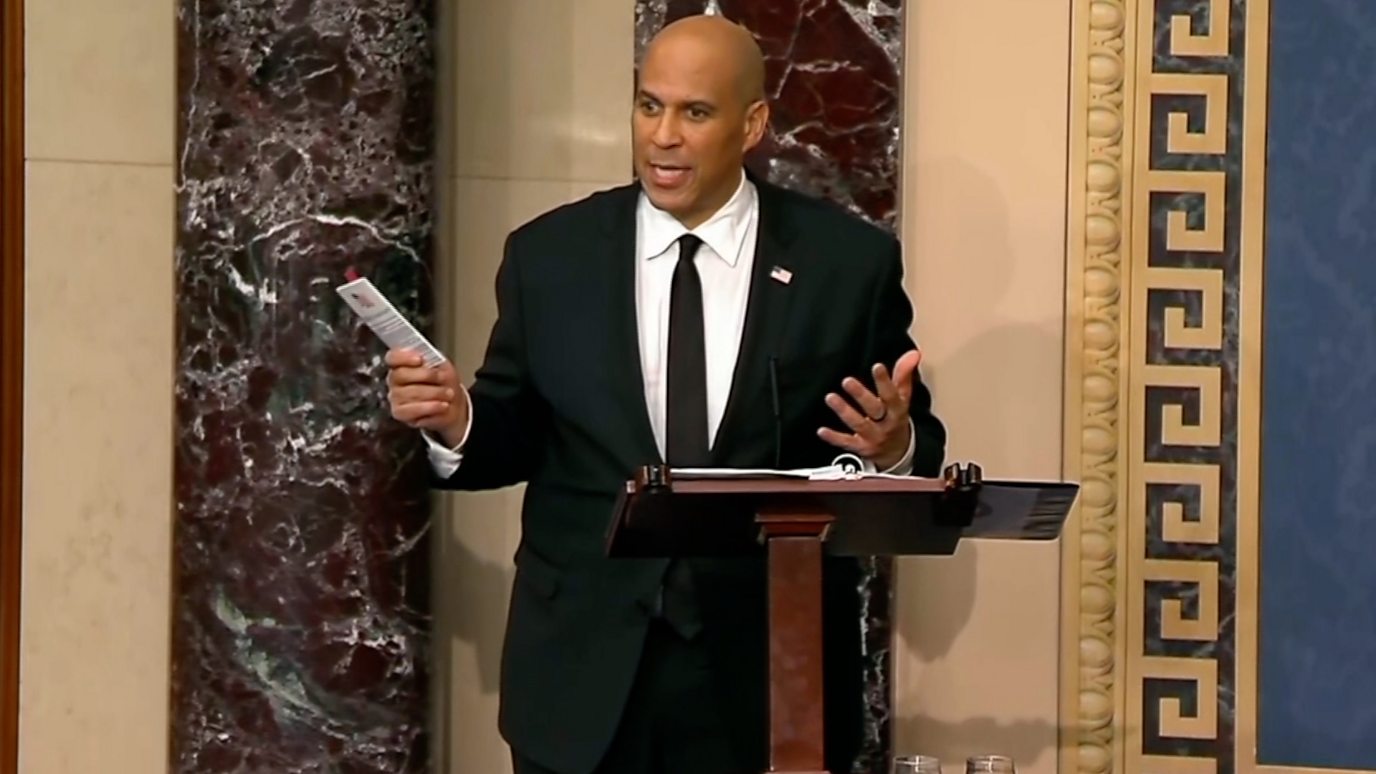US Senator Cory Booker has made history by delivering the longest speech ever recorded in the Senate, speaking for 25 hours and four minutes in what he described as a symbolic stand against former President Donald Trump.
The New Jersey Democrat’s speech, which began at 7:00 pm local time on Monday and ended at 8:06 pm on Tuesday, was not a formal filibuster but significantly delayed legislative business in the Republican-controlled Senate. Under Senate rules, such extended speeches require the speaker to remain standing and forgo bathroom breaks.
The previous record had been held by Republican Senator Strom Thurmond, who spoke for 24 hours and 18 minutes in 1957 while opposing the Civil Rights Act.
The 55-year-old Senator said he would continue speaking for as long as he was physically able.
During his marathon address, he read letters from constituents who claimed to have suffered under Trump’s policies.
He also recited poetry, discussed sports, and fielded questions from fellow Democrats, including Senate Minority Leader Chuck Schumer, Senator Dick Durbin, and Senator Kirsten Gillibrand.
“I’m here because as powerful as he was, the people are more powerful,” Booker said, referencing Thurmond’s historic but controversial speech 68 years ago.
As he reached the record-breaking milestone, he quipped about his physical endurance, saying he needed to “deal with some of the biological urgencies I’m feeling.”
Booker, who is African-American and a descendant of both slaves and slave-owners, framed his speech as a moment of reflection on American history and the ongoing struggles for justice.
His act of protest was widely supported by fellow Democrats, who currently hold no control over the White House, Senate, or House of Representatives.
It was the longest Senate speech since Republican Senator Ted Cruz spoke for 21 hours in 2013 against Obamacare.
Cruz, reflecting on his own experience, told CBS that such extended speeches are a physical challenge.
He had prepared by wearing comfortable shoes and drinking minimal water, adopting a strategy he described as “nothing in, nothing out.”











